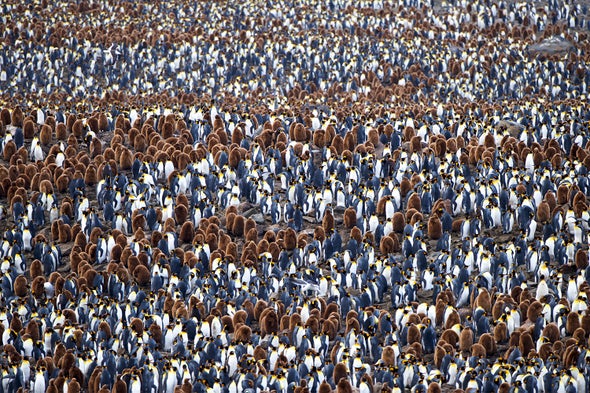(单词翻译:单击)
听力文本
Hi, I'm Scientific American assistant news editor Sarah Lewin Frasier. And here's a short piece from the August 2020 issue of the magazine, in the section called Advances: Dispatches from the Frontiers of Science, Technology and Medicine. The article is titled "Quick Hits," and it's a rundown of some noncoronavirus stories from around the globe.
From Canada:
A new study models how a gigantic, morphing blob of liquid iron in Earth's outer core underneath the Canadian Arctic is losing its grip on the North magnetic pole. A second, intensifying blob below Siberia is pulling the pole away.
From Scotland:
A geologic-dating effort suggests the fossil of a millipedelike creature found on the island of Kerrera formed 425 million years ago, making it possibly the oldest-known fossilized land animal. (Older land animals have been spotted indirectly, through preserved tracks.)
From Tanzania:
Researchers discovered Africa's largest-ever collection of fossilized human footprints, left in volcanic mud about 10,000 years ago. Many of them came from a group of 17 people, mostly women, all walking in the same direction.
From Norway:
Archaeologists are excavating a 20-meter Viking ship, buried below a farmer's field, to stop a wood-eating fungus from destroying it. Ground-penetrating radar had found the ship in 2018, and a new wood sample analysis revealed that it could not be preserved underground.
From Zambia and Mongolia:
This spring a satellite-tagged cuckoo completed an epic 12,000-kilometer journey from one country to the other. It had originally been tagged in Mongolia in 2019 and traversed 16 countries in its round-trip migration.

From Antarctica:
Scientists found that king penguin excrement releases nitrous oxide–also known as laughing gas. It forms as soil bacteria eat the droppings' nitrogen-rich compounds.
That was "Quick Hits." I'm Sarah Lewin Frasier.
参考译文
大家好,我是《科学美国人》助理新闻编辑莎拉·莱温·弗雷西尔。下面是本杂志2020年8月刊的一篇短文,摘自“进展:科学、技术和医学前沿快报”版块。这篇文章名为《要闻快讯》,汇集了全球各地非新冠病毒报道的摘要。
加拿大:
一项新研究模拟了加拿大北极下的地球外核中一个巨大变形液态铁团如何失去对北磁极的控制。西伯利亚地下另一个不断加强的液态水团正在将磁极拉远。
苏格兰:
一项地质年代测定工作表明,在科雷拉岛上发现的千足虫类生物化石形成于4.25亿年前,使它成为可能是已知最古老的陆地动物化石(人们通过保存下来的足迹间接发现了更古老的陆地动物。)
坦桑尼亚:
研究人员发现了非洲有史以来最大的人类脚印化石群,这些脚印在大约1万年前留在火山泥中。许多脚印来自一个由17人组成的团体,成员大多是女性,都朝着同一个方向行走。
挪威:
考古学家正在挖掘一艘埋在农民田地下面的20米长的海盗船,以阻止一种食木真菌破坏它。探地雷达在2018年发现了这艘船,新的木材样本分析显示它无法保存在地下。
赞比亚和蒙古:
今年春天,一只被卫星追踪的布谷鸟完成了从一国到另一国的1.2万公里壮丽旅程。它最初于2019年在蒙古被标记,并在往返迁徙中穿越了16个国家。
南极洲:
科学家发现,帝企鹅的排泄物会释放出一氧化二氮——也就是笑气。它由土壤细菌吃掉粪便中富含氮的化合物而形成。
以上是《要闻快讯》,我是莎拉·莱温·弗雷泽。
译文为可可英语翻译,未经授权请勿转载!
重点讲解
重点讲解:
1. lose one's grip on 失去(对…的)理解(或控制);驾驭不住;
The manager seems to be losing his grip on the business.
经理似乎正在失去对企业的控制。
2. come from 来自;
They come from totally different cultures.
他们来自完全不同的文化。
3. stop sb. from sth./doing sth. 阻止;阻碍;阻拦;防止;
You can't stop people from saying what they think.
人们怎么想就会怎么说,你阻止不了。
4. also known as 亦称为;别名;
Peter Wilson, also known as 'the Tiger'.
彼得∙威尔逊,也称“老虎”。
关注微信公众号【可可双语精读】,获取详细讲解内容


